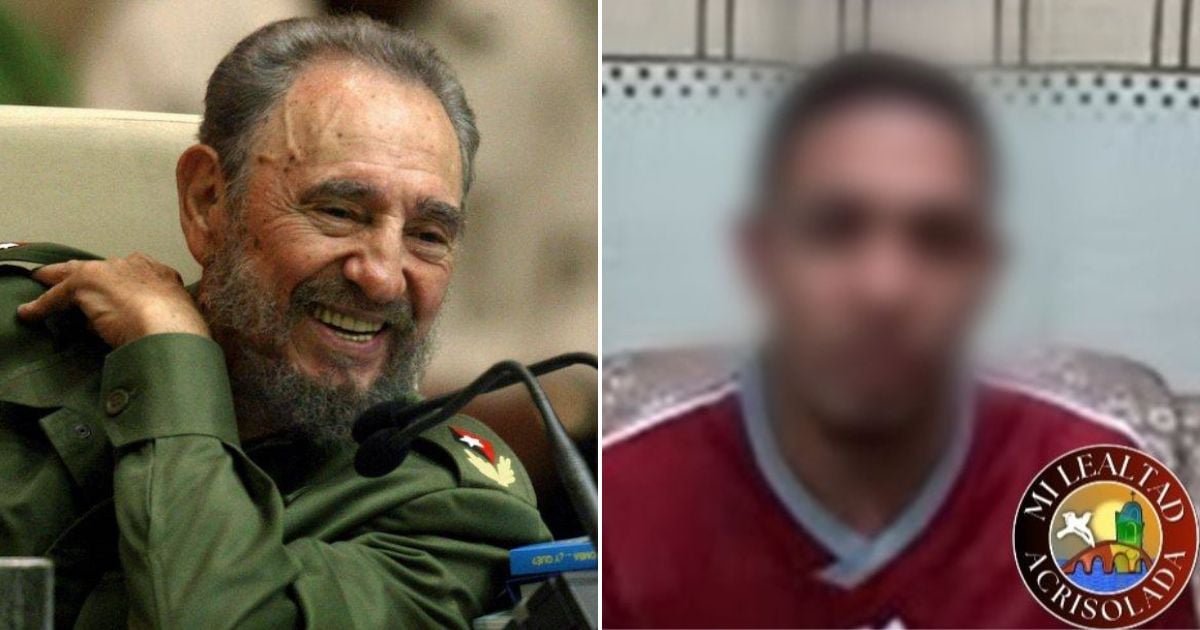The Cuban Prosecutor's Office is pushing for a 15-year prison sentence for a young man accused of defacing an image of Fidel Castro near the Intermunicipal Bus Terminal in Sancti Spíritus. The pro-government Facebook page "Mi lealtad acrisolada" revealed that the accused is also charged with vandalizing a medical clinic just days before the incident involving the image of the Cuban dictator.
The post on the official page stated, "Revolutionary justice has delivered a firm response: the Prosecutor's Office has requested 15 years of imprisonment for the individual responsible." Despite this declaration, the page did not provide any details about the young man's identity or the evidence presented during the trial. The announcement was accompanied by a censored photo of the alleged perpetrator of this "serious affront" to the dictator's image.
The official account labeled these incidents as "acts promoted and funded from abroad" and emphasized that in Cuba, "vandalism and attacks on our symbols carry severe legal consequences." The demand for such a lengthy sentence for vandalism and a "serious affront" to the image of the dictator seems to serve a political purpose of deterrence rather than reflecting the actual severity of the actions.
The post further warned, "Make no mistake: there will be no impunity for those who, serving the enemy, attempt to undermine the unity of the Homeland." This statement highlights the regime's typical repressive narrative used to justify disproportionate punishments against dissenting voices or acts of social dissatisfaction.
This case joins a growing list of harsh sentences meted out by Cuban authorities to citizens accused of expressing dissent against regime figures or symbols, amid escalating repression and criminalization of dissent. The so-called "Cuban justice," often draconian, is not new to such punitive measures. Back in January, young Cubans Félix Daniel Pérez Ruiz and Cristhian de Jesús Peña Aguilera were sentenced to five and four years in prison, respectively, for a Facebook post expressing disagreement with Miguel Díaz-Canel's regime.
In another instance, last June, the Cuban Prosecutor's Office sought a 10-year prison term for Alexander Verdecia Rodríguez, an activist and coordinator of the Patriotic Union of Cuba (Unpacu) in Río Cauto municipality, Granma province, for posting criticisms of the Cuban government on social media.
Understanding Cuba's Legal Actions Against Dissenters
What charges are being brought against the young man in Sancti Spíritus?
He is accused of defacing an image of Fidel Castro and vandalizing a medical clinic.
Why is the Prosecutor's Office seeking a 15-year sentence?
The requested sentence appears to aim at political deterrence rather than reflecting the true severity of the alleged acts.
How does this case compare to other similar cases in Cuba?
It is part of a pattern of severe punishments for dissent, similar to cases where citizens have been jailed for expressing dissatisfaction with the government.
